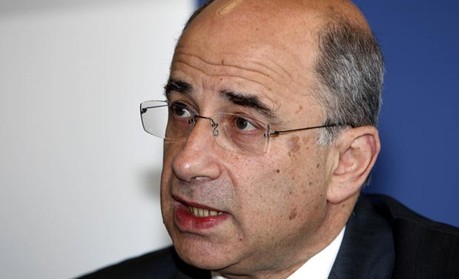
Lord Leveson, who is due to begin hearing evidence next week to part one of his two-part public inquiry into phone hacking and press standards
Credit: Sean Dempsey/PALord Leveson has rejected a call from the Crown Prosecution Service and Metropolitan police for the police to be allowed to review evidence submitted to his media inquiry and make decisions about what can and cannot be shared with participants or made public.
The CPS and Met police warned Leveson in a joint submission that part one of his inquiry into phone hacking and media standards should be careful not to jeopardise a police investigation or trial.
The submission, made by Neil Garnham QC on behalf of the two bodies, set out that all witnesses intended to be called by Leveson should be first run by the by the police to avoid anyone considered to be a suspect being called to give evidence which may prejudice a later trial.
It also stated that all new evidence submitted to the inquiry should be first provided to the police, who would then have the right to embargo anything they deem a risk to the criminal investigation, and that documents "not already widely reported" should not be made public.
But Leveson has largely rejected what he called the "zero tolerance" submission by the CPS and Met police, claiming that "rigorous adherence" to the rules set out by the CPS and Met police "would substantially increase the work that has to be put into adducing evidence before me and has the potential seriously to damage both the public perception of the Inquiry and its timeliness".
"I do not accept that the conduct of part one of this inquiry is likely to cause a risk of prejudice (let alone serious prejudice) to the investigation or any prosecution although I repeat that I will remain mindful of the concerns of the police and the CPS throughout."
He added that he was "not prepared to decline to call every witness who has been arrested or about whom the police express suspicions", but said he would consider witnesses on a "case-by-case basis" and attempt to prepare and control their responses as necessary.
Leveson has suggested instead that he accept evidence from both witnesses and information from the police about the criminal investigation, and decide himself what poses a risk of jeopardising the investigation or future prosecutions.
Leveson's public inquiry consists of two parts, with part one designed to look at the "culture, practices, and ethics" of the press in a general sense but not at specific evidence, so as to avoid prejudicing the ongoing criminal investigation.
He is due to begin hearing evidence to part one of the inquiry on 14 November.
An inability to hear evidence during part one from anyone defined as a suspect in the case would likely rule out those previously arrested by the Met in relation to phone hacking. This includes former News International chief executive Rebekah Brooks, who was denied core participant status but has made written submissions.
According to Leveson however, the submissions made on Brooks' behalf are already careful not to touch on any material that could jeopardise an investigation.
Responding to specific parts of the the submission by the CPS and Met police, Leveson explained with regard to the risk of prejudice that, while the responses of witnesses could not be controlled, he is "satisfied that it will be possible to maintain the focus" on general issues of culture, practice and ethics rather than "questions of individual responsibility".
In terms of the risk of contempt of court by the press, Leveson acknowledged that "those intent on mischievous behaviour may not be put off by the threat of contempt", but emphasised that the normal contempt laws apply in the case of active proceedings.
With regard to calling witnesses, Leveson said that he will consider all selections against the risk of prejudice, and despite the potential for notable omissions from the inquiry, suspects of Operation Weeting – the Met's investigation into phone hacking – would not be called to give evidence on that subject.
Leveson added that he was "not aware of the parameters of Operation Elveden" – the Met's investigation into corrupt payments to police by the press, which is covered by module two of his inquiry – but said that the same rules would apply to that investigation.
In terms of module three, which concerns the relationship between the press and politicians, Leveson said that as there was "no suggestion that any investigation will be influenced by the inquiry", all those who can assist with it will be called.
A sixth arrest by Operation Elveden was made yesterday, with the Sun's Thames Valley district correspondent Jamie Pyatt becoming the first Sun employee to be arrested by any one of the Met's three investigations connected to the phone-hacking scandal.
Read Leveson's response in full.
See the full CPS/Met police submission [PDF] (via the Hacked Off Campaign).
Free daily newsletter
If you like our news and feature articles, you can sign up to receive our free daily (Mon-Fri) email newsletter (mobile friendly).











